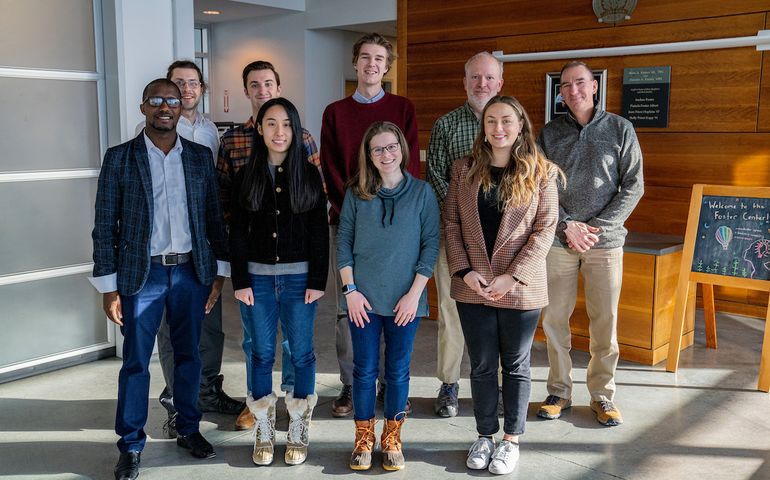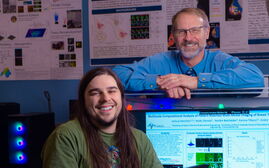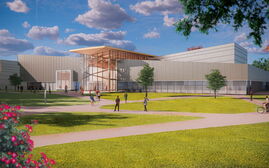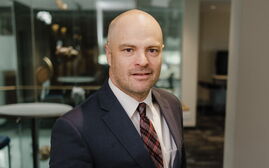UMaine research and tech program stokes innovation with $25,000 prize
 Courtesy / UMaine
Five faculty-led teams were selected for the University of Maine’s Maine Innovation Research and Technology Accelerator program.
Courtesy / UMaine
Five faculty-led teams were selected for the University of Maine’s Maine Innovation Research and Technology Accelerator program.
Improvements in commercial catheters to increase patient health and safety. Nontoxic fire suppressant foam. A new way to use artificial intelligence.
Those are some of the research innovations by faculty-led teams that make up the fifth cohort of the University of Maine’s Maine Innovation Research and Technology Accelerator program.
The teams are eligible for up to $25,000 each to help develop products that could have commercial value. Each team has an advisory committee of industry and technology experts who provide feedback and advice.
To kick off the program, this year’s cohort recently completed an immersive boot camp designed to introduce them to all aspects of the commercialization process.
Commercialization plans vary depending on the type of invention a team brings, and the result could be starting a new company or licensing an existing one.
Companies that have been formed after participation in MIRTA include Neuright, winner of the $25,000 David Shaw prize at the statewide Top Gun accelerator program in 2019, and UNAR Labs, which was selected to join the first cohort of the Roux Institute Startup Residency Program in 2021. In 2022, Waved Medical was the first runner-up in the Greenlight Maine Collegiate edition and was also the winner of Maine Venture Fund’s “Maine Startup Challenge” for the collegiate tier.
MIRTA is part of the UMaine Foster Center for Innovation. The program helps teams from Maine research institutions advance discoveries into public and commercial use. Teams work 20 hours a week for 16 weeks doing market research, intellectual property analysis and business model development to bring their inventions to market. All projects are tied to Maine businesses or industries critical to the future of the state.
Seven patents have been filed or issued and eight new startups have been formed from the 21 teams in the first five MIRTA cohorts. In addition, the teams have raised more than $2.5 million in funding and prototype sales to support ongoing commercialization.
This year's MIRTA teams
- PROCatheter is developing a bio-inspired coating on commercial catheters that can reduce the need for antibiotics, making them safer for patients. Team: Caitlin Howell, associate professor, Department of Chemical and Biomedical Engineering; Japhet Murenzi, MaineMBA student
- Play Portal is a simulated 3D-printed port-a-catheter that is inserted into stuffed animals and dolls and given to pediatric patients who have port-a-catheters. It’s expected that this could help young patients feel more at ease with their medical device if they have a friend to share the experience with. Team: Bethany Sweet, certified child life specialist, MaineHealth; Taylor Boucher, MaineMBA student.
- Firefighting BioGel can offer an environmentally friendly material that is safer for the environment and for those fighting fires. Team: James Anderson, Senior R&D program manager, Advanced Structures and Composites Center; Xander Karris, MaineMBA student.
- Intelli-Tex Color is developing changing textile yarns and photovoltaic power-producing textile yarns that can be woven into consumer-grade products. Team: David Erb, senior R&D program manager, Advanced Structures and Composites Center; and Christopher Erb, UMaine senior in mechanical engineering
- SeekInsight is looking into an artificial intelligence fiber characterization tool for papermakers to control their pulp composition, improve product properties and adapt to new material trends. Team: Douglas Bousfield, Calder professor, Department of Chemical and Biomedical Engineering; Tyler Seekins, Ph.D. candidate; Andre Khalil, director of CompuMaine Lab
The Foster Center serves both the campus and outside businesses and organizations. The center is part of the university’s Office of Innovation and Economic Development, which links businesses and communities to university experts and first-class facilities to solve problems and innovate Maine’s future.













0 Comments